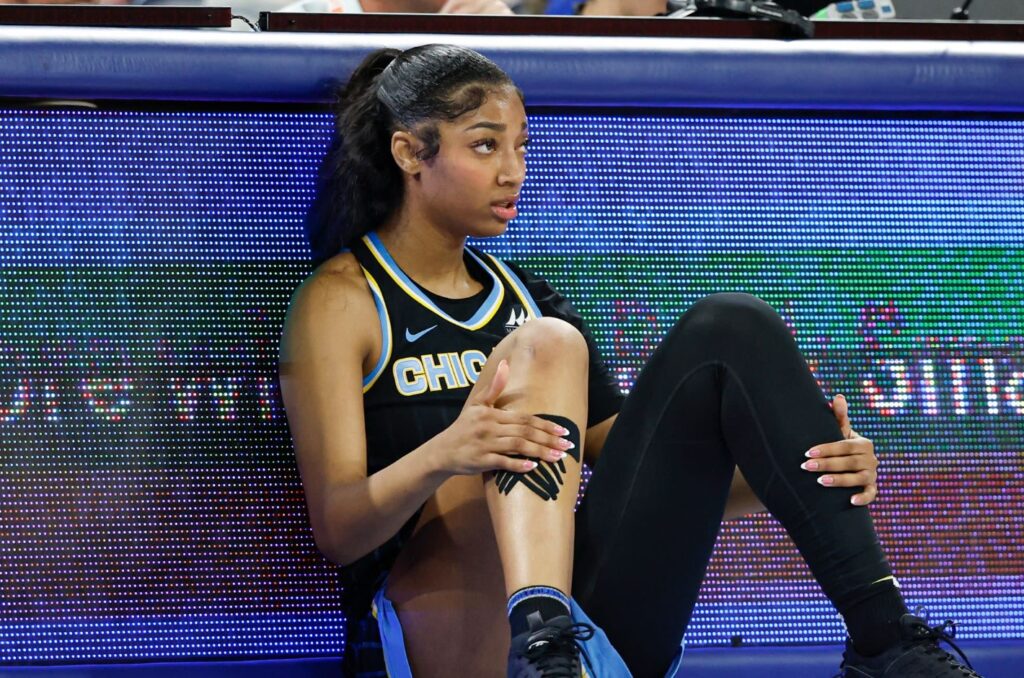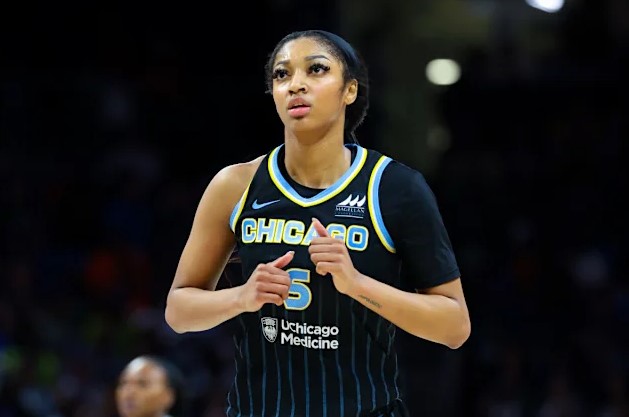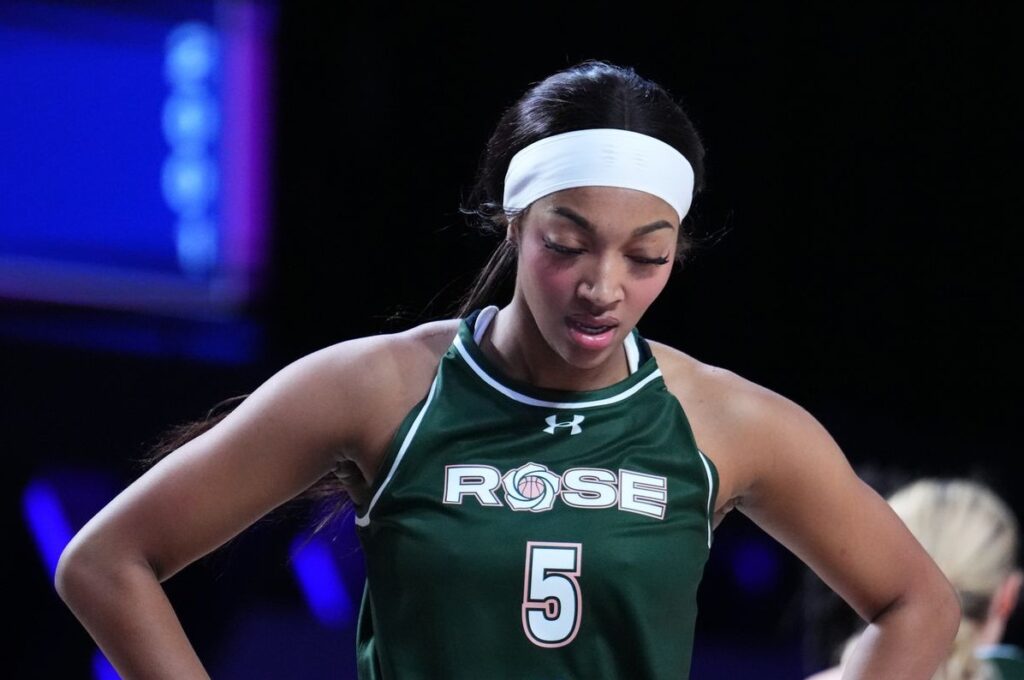“If You’re Tired, You Can Go Home”: The Hug That Shattered Angel Reese’s Walls
Angel Reese had always been known for her strength. On the court, she dominates with a presence that demands respect. Off the court, she wears confidence like armor. She talks back when others want her to stay silent, she smiles when the world expects her to break, and she walks with the kind of unapologetic grace that many fear and even more misunderstand. But sometimes, even the strongest need a moment to fall apart.

For months, Angel had been the center of a cultural storm. Criticized not just for how she plays the game, but for who she is — a bold, Black woman refusing to shrink. Every gesture, every post-game comment, every look she gave became fodder for judgment. She was called too loud, too cocky, too much. And yet, through it all, she never let the mask slip. She kept showing up. Kept performing. Kept fighting.
But it wasn’t a championship win or a media moment that finally broke her. It was something much smaller — and far more human.
After a long, grueling game that had left her drained both physically and emotionally, Angel stepped off the court and into the tunnel. Her face was blank, her steps slow. That’s when a young boy — no more than ten — slipped past the crowd and reached out to hug her. His skin was dark like hers, his eyes wide with quiet wisdom far beyond his years.
Angel froze. Then she knelt, so they could be face to face.
And the boy said, “If you’re tired, you can go home.”
That’s it. Seven words. Not shouted, not dramatic. Just spoken softly, with the kind of raw truth that cuts through everything else. And in that moment, Angel Reese — the fierce, defiant, unbreakable star — crumbled. Tears spilled down her cheeks. She pulled the boy closer, her body shaking as she finally let herself be vulnerable.

Because behind the headlines and the social media debates, behind the brand deals and the buzzer-beaters, there is a young woman who has carried more than just a basketball team. She’s carried expectations. Stereotypes. Scrutiny. The burden of representation.
That hug wasn’t just a hug. It was permission.
It was permission to rest. Permission to be human. Permission to stop being strong — just for a moment.
Many will never understand what it means to be a young Black woman in the spotlight. The pressure to succeed not just for yourself, but for your whole community. The fear that one misstep could define you forever. The loneliness that comes with being celebrated and hated in the same breath.
Angel Reese has been expected to be a role model, an activist, an entertainer, and an athlete — all at once. And she has delivered, time and again. But no one asked if she was okay. No one stopped to say, “You’ve done enough.”

Until that boy did.
Social media exploded when the video went viral. Millions of viewers watched as Angel fell to her knees, holding that boy like he was the last safe place on Earth. Many cried. Some reflected. A few mocked — as always. But for those who truly saw it, that moment was sacred.
It was a reminder that empathy doesn’t always come from the powerful. Sometimes, it comes from the smallest voices. That healing doesn’t always come from applause or trophies, but from being seen. Truly seen.
Later that evening, Angel posted a single sentence to her story:
“Today, I finally let go.”
And maybe, just maybe, that’s what makes her strongest of all.
Because strength isn’t always about holding everything together. Sometimes, it’s about knowing when to fall apart — and who to fall apart with.
Angel Reese will return to the court. She will play, she will win, she will continue to stand tall in the face of noise. But now, we know: even heroes need hugs. Even icons need a place to rest. And sometimes, the most powerful act isn’t winning a game — it’s surrendering to a simple truth whispered by a child.

If you’re tired, you can go home.
And that home might not be a place, but a moment. A breath. A hug. A voice saying, “You’ve done enough.”